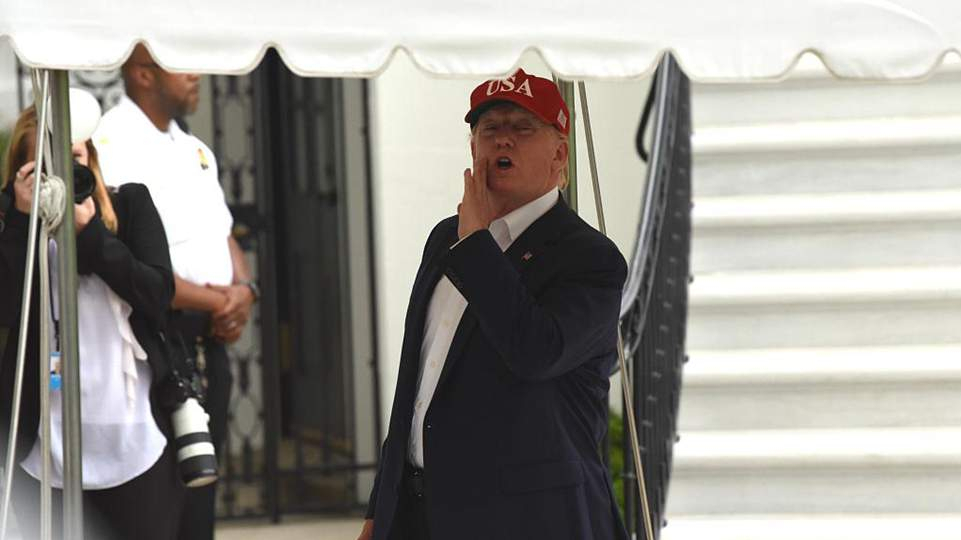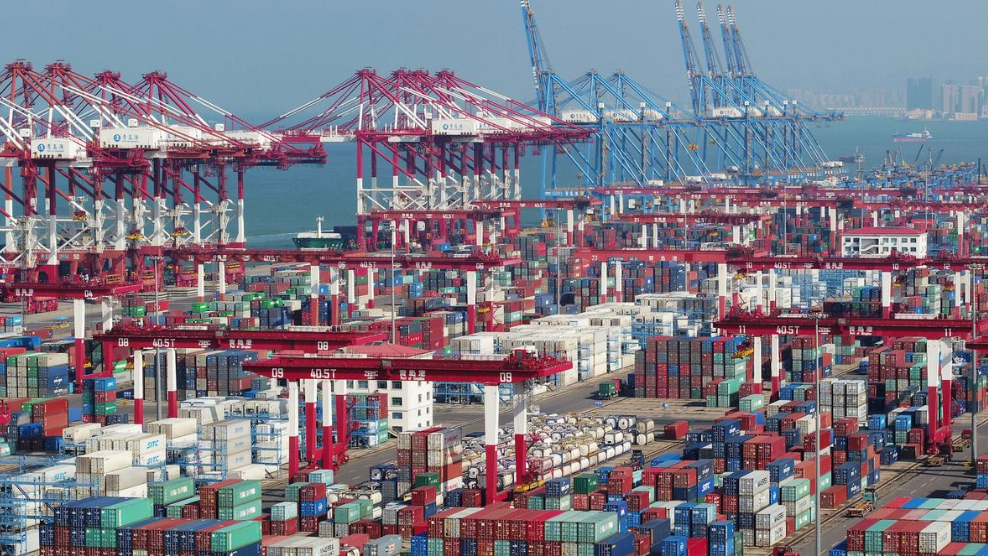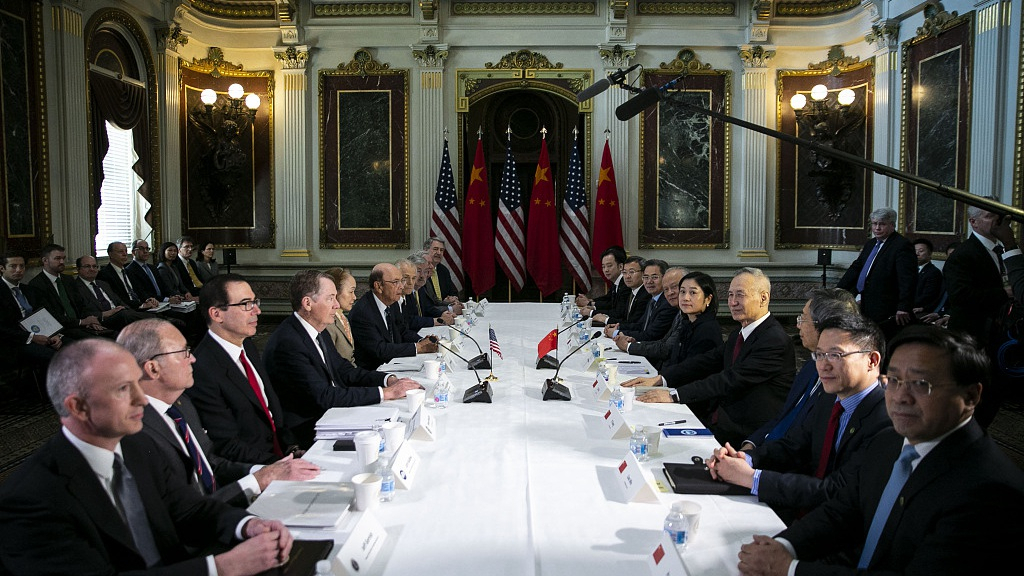

Editor's note: Alessandro Golombiewski Teixeira is a National Thousand Talent Distinguished Professor of Public Policy at the School of Public Policy and Management, Tsinghua University, and a professor of International Business at Schwarzman College in Tsinghua. He is a former Special Economic Advisor of the President of Brazil and former minister of tourism, and minister of development, industry, and foreign trade of Brazil. He was also president of the World Investment Association (WAIPA). The article reflects the author's views, and not necessarily those of CGTN.
Most books written in the last decade about international relations and globalization start their introductions with the affirmation that the world is changing rapidly, and we live in a multipolar world in which many countries share the political, economic and military “power.” At the same time, very few of these authors have foreseen that people like Donald Trump in the U.S., Janos Ader in Hungary, or even Jair Bolsonaro in Brazil could be elected and possibly reelected.
Now these authors and political analysts are rushing to explain these terrible results and to affirm that perhaps the world is no longer a multipolar system and we may be going back to a kind of bipolar world or a different multipolar world in which the U.S. and China are the leading opposing countries.
Fortunately, many academic and political analysts are familiar with “realpolitik” (a system of politics or principles based on practical rather than moral or ideological considerations) and analyze political, social and economic events with a pragmatic and clear approach, what the German sociologist Max Weber once called “social action.” Weber primarily focused on the subjective meanings that human actors attach to their actions in their mutual orientations within specific socio-historical contexts.
I realized the practical meaning of Weber’s theory in 2011, when I was the Brazilian Deputy Minister of Development, Industry and Foreign Trade and I was invited to deliver a speech about Latin America (Brazil) and U.S. relations to one of the most prestigious conservative think tanks in Washington, DC.

Containers and trucks are seen at a terminal of the Qingdao port in Shandong Province, China, November 8, 2018. /Reuters Photo
After a one-hour presentation, I was ready to answer some questions and respond to criticism for being a left-wing government. However, to my astonishment, I did not receive a single question about Brazil or U.S.-Latin America relations, but I did receive more than 10 questions about China, its relationship with Brazil and Latin America and what my thoughts were about China's role in the world.
In that moment, such questions sounded strange and somehow unexpected, but later, I realized that was not a coincidence or an isolated event. Clearly, a considerable portion of the political and economic thinkers in the U.S. was already ahead of many world political analysts in recognizing the rise of China eight years ago. Thus, it is clear to me that the current trade dispute is only half the problem. The U.S. is confronting China in all areas, from semiconductors to submarines and from films to lunar exploration. For some time, the U.S. had really convinced the world that America was in search of a world in which everyone would win.
Today, winning implies the defeat of the other, and for that reason, the U.S.' strategy is to permanently subject China to the American world order. Therefore, the trade dispute, the Huawei incident and many others in which the U.S. has complained that China acts dishonestly, stealing technology and exerting itself as a force in the South China Sea, is just a disguise for the real situation. Jealous America wants to block China's ascension because it does not accept its own decline as the only superpower. Learning to live together in a world where we need to respect the sovereignty of nations and share power instead of grabbing it has not been easy for the U.S.
Mr. Trump's intention is to keep China on the outside, as the U.S. did with the USSR, but fortunately, China is not the USSR. In nominal terms, Soviet-American trade in the 1980s and in part of the 1990s was around three billion U.S. dollars per year. In contrast, trade between the U.S. and China is now two billion U.S. dollars per day.

Chinese and U.S. trade representatives meet for trade talks in the Eisenhower Executive Office Building in Washington, DC, U.S., February 21, 2019. /VCG Photo
Now everyone has realized that China is no longer a poor developing economy. Its economy has improved significantly quantitatively and qualitatively against the U.S. economic position, which has weakened. In 1980, the U.S.' GDP was one-third of the world's GDP, while China's GDP was a little more than a twentieth.
According the World Bank, China now has a GDP of 12.24 trillion U.S. dollars, and the U.S.' GDP is 19.48 trillion U.S. dollars. The Chinese economy also took a qualitative leap. Many advances have been made in the technological field. The country is now an innovator that holds more than 40 percent of all patents worldwide.
Dealing with China means finding ways to cooperate and not to confront. The measures that the U.S. is adopting are aggression that needs to be contained. There is no shortage of projects on which the two nations can work together, including genetics, quantum technologies, space exploration and climate change. An agenda like this requires skill, political leadership and vision. This is what is missing right now, especially with Mr. Trump looking with contempt for the global good.
The U.S. will have a chance again in November next year to choose between cooperation or confrontation. Let us see what will be the way that America will lead.
(If you want to contribute and have specific expertise, please contact us at opinions@cgtn.com.)

Copyright © 2018 CGTN. Beijing ICP prepared NO.16065310-3
Copyright © 2018 CGTN. Beijing ICP prepared NO.16065310-3